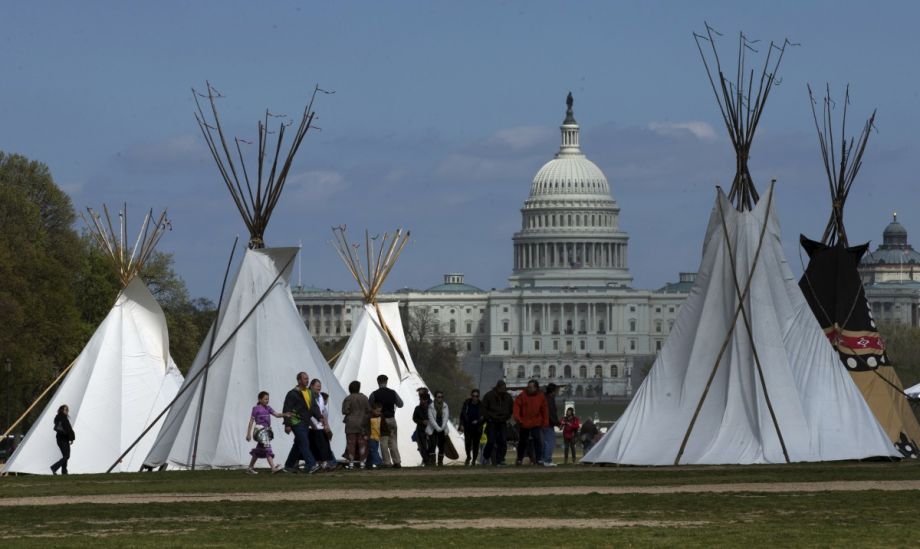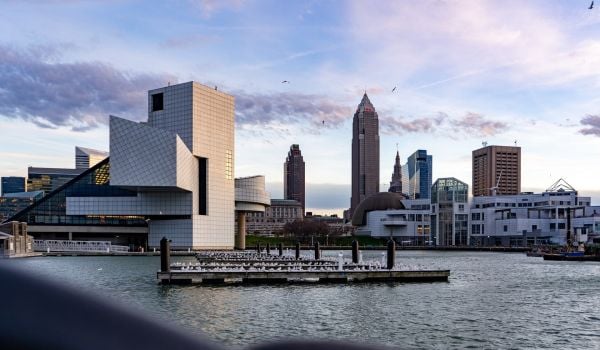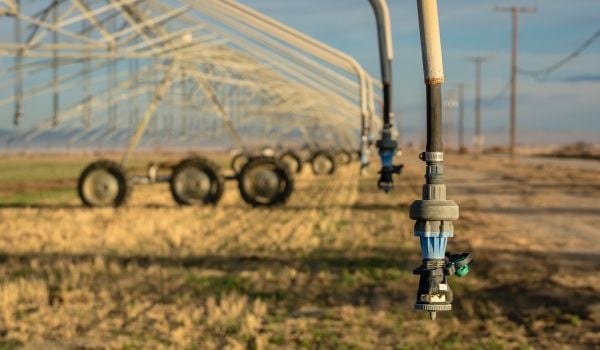In recent months, environmentalists have scored several victories on renewable energy issues. In the Great Plains, opponents of the Keystone XL Pipeline have succeeded in delaying the project repeatedly. In Kentucky, activists opposing the Bluegrass Pipeline have filed court cases to avert a developer’s attempts to seize lands. And in Georgia, a group called the Green Tea Coalition has promoted solar power.
Amid these recent victories, there’s a clear and rather surprising shift. Where once “environmentalist” was a synonym for “tree-hugging hippie,” recent victories on campaigns on renewable energy issues have traded on family values, religiosity and private property ideals. Some have even included the radical right wing. If the key to winning environmentalist battles is a conservative perspective, and urban life correlates with progressive thinking, then what should urban environmentalists do?
It’s unsurprising that energy issues are often rural issues. Fracking plays, mining operations and gas pipelines — all fault lines in current battles on energy — are all typically far outside cities. Some of the most promising renewable energy solutions, including wind and solar farms, are also often located on rural land.
It would make sense, then, that the values common in rural areas are the ones on which many environmental battles are won and lost. In recent cases, those values have been conservative.
In the Great Plains, for example, the group Bold Nebraska has promoted resistance to the Keystone XL pipeline with images of the rugged all-American rancher and rhetoric about “family as the absolute center of everything,” as lead organizer Jane Kleeb puts it. Kentucky activists have traded on rural areas’ religious traditions — particularly after pipeline developer Williams Co. approached the historic Abbey at Gethsemani about placing a pipeline across its acreage – and gained traction in the Kentucky legislature with arguments against developers’ intrusions into private property. Meanwhile, Georgia’s Green Tea Coalition is “basically the conservation arm of the Tea Party,” according to founder Debbie Dooley.
In many cases, rural arguments contrast strongly with those of urban groups like Sustainable South Bronx or Chicago’s Little Village Environmental Justice Organization. These environmentalist organizations start from a social justice perspective — tying together polluting power plants, factories or waste dumps in poorer urban neighborhoods with left-wing values on class, identity politics and social inclusion. Indeed, the urban-rural split replicates an overall pattern in which conservatives tend to cluster in rural areas and liberal viewpoints are more prevalent in the city.
Nance Klehm, an ecologist with homes in urban Chicago and rural northern Illinois, explains how rural life can promote conservatism: “The thing with rural conservatives is that they have something to protect, they actually own their land, and that automatically makes you more libertarian or more conservative.” (Full disclosure: Klehm is a friend of mine.) Scott Parkin of leftist group Rising Tide organizes in rural communities nationwide. (“These are not liberal places,” he says.) He says rural-dwellers’ resistance to change and emphasis on loyalty can factor into their support of polluting industries such as mining: “There’s almost like a sense of betrayal they have with people” who protest against mining companies.
No matter what initial reluctance might exist, environmentalism can offer something to rural conservatives. While Klehm says resistance to fracking, mining or pipelines can be difficult because “farmers are working the poverty line,” Dooley suggests renewable energy is the answer. “Farmers want the market opened up for solar because they would love to be able to lease their farm land to have solar farms put on.”
Even the hot-button issue of climate change has become a talking point in conservative rural areas. Kleeb says that, even though “it is traditionally a progressive issue,” Bold Nebraska has even begun to discuss climate change. (“Even today it’s not the first thing that comes out of any of our mouths,” she notes.) And a group of nuns from rural Kentucky who began opposing the Bluegrass Pipeline last year recently protested for UN action on climate change at the People’s Climate March in New York City.
If goals are increasingly unified, the means are not necessarily a matter of consensus. Parkin says Rising Tide — which does “front-line solidarity work” in 50 locations in North America, including West Virginia, Kentucky and Utah — organizes against “false solutions,” including “market-based mechanisms” for resolving environmental issues. Dooley, on the other hand, promotes free market capitalism.
But beneath surface contradictions, the guiding principle is singular and crystal clear: resistance to the crony capitalism of corporate America. Left-wing Rising Tide, Parkin says, has “a strong critique on corporations and how they profit from the destruction of the Earth.” Tea Party founder Dooley emphasizes “removing the subsidies for energy sources that damage the land, and making them fully responsible for cleaning up.” Right-centrist Kleeb concurs: “The end goal is certainly that we as citizens have more power than big corporations give us credit for.”
What can urbanites do to help? Kleeb speaks of “a cross-partisan fight and a cross-cultural fight,” and advises “really pushing back on politicians on their energy policy.”
Parkin advises forgetting all divisions but the one between people and corporations: “Those other divisions are false dichotomies. You gotta look at who’s making the money.”
Dooley asks progressives and urban people to openly unite with conservatives and rural-dwellers. “If you can just bring 30 percent of the conservatives on board to fight with you, you’ll have a much stronger army. … We need to battle in the trenches for the green energy revolution.”

M. Sophia Newman is a freelance writer and an editor with a substantial background in global health and health research. She wrote Next City's Health Horizons column from 2015 to 2016 and has reported from Bangladesh, India, Nepal, Kenya, Ghana, South Africa, and the United States on a wide range of topics. See more at msophianewman.com.
Follow M. Sophia .(JavaScript must be enabled to view this email address)
















